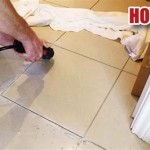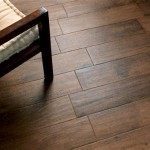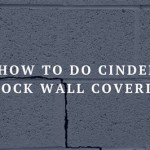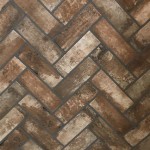Can You Put Tile On A Garage Floor?
Tiling a garage floor offers a durable, aesthetically pleasing, and easy-to-clean surface. However, the unique conditions of a garage environment require careful consideration before undertaking this project. Factors such as moisture, temperature fluctuations, and heavy loads can impact the longevity and performance of a tiled garage floor.
One of the primary concerns when considering tile for a garage floor is moisture. Garages are often exposed to moisture from rain, snow, and melting ice carried in on vehicles. This moisture can seep into the substrate beneath the tile, potentially leading to problems such as cracking, grout deterioration, and mold growth. Proper preparation and waterproofing are essential to mitigate these risks.
Temperature fluctuations also pose a challenge for tiled garage floors. Extreme heat and cold can cause expansion and contraction of the tile and substrate, potentially leading to cracking and debonding. Choosing the right type of tile and adhesive, along with proper installation techniques, can help minimize these issues. Porcelain tile, known for its density and low water absorption rate, is generally a better choice for garage floors than ceramic tile.
The weight-bearing capacity of the garage floor is another critical factor to consider. Heavy vehicles and equipment can exert significant pressure on the tiled surface. A structurally sound substrate is essential to support this weight and prevent cracking. A concrete slab with proper reinforcement is typically the best foundation for a tiled garage floor.
Proper preparation of the concrete slab is crucial for successful tile installation. The surface must be clean, level, and free of any cracks or imperfections. Any existing cracks should be repaired, and the surface should be thoroughly cleaned to remove dirt, grease, and oil. A primer designed for concrete should be applied to ensure proper adhesion of the tile adhesive.
Choosing the right type of tile is paramount for a durable and long-lasting garage floor. Porcelain tile, as mentioned earlier, is generally preferred due to its low water absorption rate and high resistance to wear and tear. Unglazed porcelain tiles offer better slip resistance than glazed options, which is important in a garage environment. Choosing a darker grout color can help minimize the appearance of dirt and stains.
The adhesive used to bond the tile to the concrete slab is equally important. A high-quality, modified thin-set mortar specifically designed for exterior use and heavy loads is recommended. This type of mortar provides superior bonding strength and flexibility, helping to accommodate the movement caused by temperature fluctuations.
Grouting the tile is the final step in the installation process. A sanded grout is typically recommended for garage floors as it provides greater durability and resistance to cracking. Epoxy grout offers even higher performance in terms of chemical and stain resistance, but it can be more challenging to work with. Sealing the grout after it has cured helps protect it from moisture and staining.
While tiling a garage floor can be a DIY project, it requires meticulous attention to detail and adherence to proper installation techniques. If unsure about any aspect of the process, consulting a professional tile installer is advisable. Their expertise can ensure a properly installed and long-lasting tiled garage floor.
Several factors can influence the overall cost of tiling a garage floor. These include the size of the garage, the type of tile chosen, the cost of labor, and the geographic location. Obtaining multiple quotes from reputable tile installers can help determine a reasonable price range.
Alternatives to traditional tile exist for garage flooring. These include epoxy coatings, concrete sealers, and interlocking rubber tiles. Each option has its own set of advantages and disadvantages in terms of cost, durability, and aesthetics. Careful consideration of these factors can help determine the best flooring solution for individual needs and preferences.
Maintaining a tiled garage floor involves regular cleaning to remove dirt, grime, and oil. Sweeping or vacuuming regularly can prevent the buildup of abrasive particles that can scratch the tile surface. Periodic mopping with a mild detergent solution is also recommended. Avoid using harsh chemicals or abrasive cleaners that can damage the tile and grout.
Addressing potential problems promptly is crucial for maintaining the integrity of a tiled garage floor. Cracked tiles should be replaced immediately to prevent further damage and potential safety hazards. Damaged grout should be repaired to prevent moisture penetration and mold growth. Regular inspection of the tiled surface can help identify potential issues early on.
By carefully considering the factors discussed and adhering to proper installation and maintenance practices, a tiled garage floor can provide a durable, attractive, and functional surface for many years.

Porcelain Tile The Ideal Surface For Garage Flooring Vault Custom Design

Installing Garage Floor Tiles Step By Rubi Blog Usa

How I Upgraded My Garage Floor Huge Difference

Best Garage Floor Tiles For 2024 Cnet

The Benefits Of Porcelain Garage Floor Tile All Floors

How To Ensure Your Tiled Garage Floor Can Last A Lifetime Vault Custom Design

Garage Flooring 7 Best Floor Ideas For Your

How To Tile A Garage Floor The Money Pit

Best Garage Floor Tiles For 2024 Cnet

Garage Floor Tile Options A Guide From Plastic To Porcelain All Floors
Related Posts








